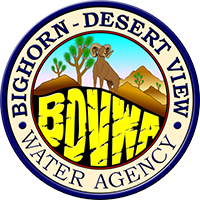Being water conscious is simple…
- Water during the early morning to prevent water wasted to evaporation and wind.
- Water your grass only when it needs it. If you step on the grass and it springs back up, then wait to water.
- Water lawns and plants separately as they have different watering needs.
- Use a kitchen timer or alarm clock to remind you when to turn off manual irrigation systems.
- Avoid spray heads or sprinklers that emit a high and fine mist that will easily evaporate.
- Break up your watering times if water puddles or runs off.
- Check all hoses, valves, and piping for leaks regularly, even a small leak can waste hundreds of gallons of water a day.
- Disconnect and drain all hoses and irrigation piping during the winter.
- If you are a weekender or leave for an extended period of time, always shut off your main service valve.
How can I reduce my water bill?
Unseen or unfixed leaks can drip hundreds, even thousands of gallons of water wastefully down the drain. A little detective work several times a year can catch these water thieves in the act and put them out of circulation. The toilet is one of the most common water wasters but its leaks tend to be less noticeable than faucet leaks. To determine if your toilet is leaking, look at the toilet bowl after the tank has stopped running into the bowl. If you still see or hear water running, your toilet is leaking. Leak detection dye tablets are available at the Agency upon request. Additionally, the Agency will provide at no charge a Water Awareness Survey to assist you in determining if you have a leak. Simply call our office at 364-2315 to request this service at no cost to you.
Desert Gardening
The Alliance for Water Awareness and Conservation (AWAC), a dynamic coalition of 25 regional organizations working together to promote water conservation, has created the following list of desert adaptive plants, divided by category (accents, grasses, groundcovers, perennial flowers, shrubs, and trees), to help you select plants that grow well in the High Desert using little water. AWAC recommends taking the list to your local nursery or home-improvement center.
ACCENTS · Agave species: A. Americana (century plant); A. parryi huachucensis; A. victoriae-reginae · Dasylirion wheeleri, Desert Spoon · Nolina microcarpa, Bear Grass · Hesperaloe parvjflora, Red Yucca · Kn-phoJla uvaria, Red-Hot Poker, Torch Lily · Yucca species: V aloj/blia, Spanish Bayonet; V baccata, Banana Yucca, Datil; V brev4, folia, Joshua Tree; V. data, Soaptree Yucca · Chamaerops humilis, Mediterranean Fan Palm · Trachycarpusfortunei, Windmill Palm · WashingtoniaJulifera, California Fan Palm
ORNAMENTAL GRASSES · Muhlenbergia rigens, Deer Grass · Muhlenbergia capillaris, Regal Mist · Muhienbergia lindheimeri, Autumn Glow · Festuca ovina glauca, Blue Fescue · Bouteloua gracilis, Blue Grama · Nassella tenuissima (Stipa tenuissima), Mexican Feather Grass Turf · Buchioc dactyloides, Buffalo Grass (Legacy) · Buchloe dactysloides, Buffalo Grass (UC Verde) Warm-Season Grasses (winter dormant) · Zoysia, Zoysia Grass · Stenotapphrum secundatum, St. Augustine Grass Cold Season Grasses (year around) · Festuca arundinacea, Tall Fescue · Poapratensis, Kentucky Bluegrass · Lolium perenne, Perenial Ryegrass
GROUND COVERS · Oenoth era berlandieri, Mexican Evening Primrose · S’antolina chwnaecyparissus, Lavender Cotton · Cerastium tomentosum, Snow-in-summer · Gazania, most varieties · Sedum, most varieties · Thymus, most varieties · Verbena peruviana, V. puichella · Dalea greggi4 Trailing Indigo Bush · Rosemarinus officinalis, ‘Prostratus’ · Phlox, most varieties
PERENNIAL FLOWERS · Coreopsis, most varieties · Penestemon ambiguus, P. barbatus,P. centranth-folius,P.eaton ii,P. palm en,P.pin-folius,P.pseudospectabilis,P.stnictus · Cosmos, most varieties.
Where can I learn about water conservation landscaping?
The Bighorn-Desert View Water Agency has joined forces with the Alliance for Water Awareness and Conservation. You can find more information on drought tolerant landscaping plants by going to http://www.hdawac.org/ and clicking on Water Conservation or phone our office and we’ll happily mail the information to you.
Sign up for Master Composter’s Program at the Yucca Valley Community Center.

